A recording of this presentation is available.
Click the button to the right to access the session archive.
Tag Archives: Online Learning
Effectively Integrating Instructor-Generated Learning Materials in a Distance Education Environment
A study conducted by Jennifer S. Hegeman found that integrating instructor-generated learning aids “not only placed a greater emphasis on conceptual understanding, but also positioned the course instructor prominently in the role of content provider, enhancing the course instructor’s teaching presence in the online environment” (Hegeman, 2015, p. 84 ). Therefore, best practices will be identified, such as chunking information, providing assignment support, providing an opportunity for students to ask questions, and being a part of the dialogue throughout the course. The use of tools such as Blackboard Collaborate, Screencastify, Flipgrid, Perusall, and podcasting will also be addressed.
A recording of this presentation is available.
Click the button to the right to access the session archive.
Practitioner Development in Online Learning Theories
The researchers currently coordinate and teach in a hybrid/online field-based teacher preparation program. In this study, a hybrid/online is defined as one that holds informational sessions both online and in a face to face setting. Field-based is defined as having students engage in applying their content and skills in an actual educational classroom setting. The combination of information delivery and application provides both instructors and students the opportunity to develop and evaluate their practitioner skills. This study hopes to uncover to what degree current online theoretical frameworks address educational practitioner development in TPPs, and use this information to improve practices as online educators and to inform future research.
A recording of this presentation is available.
Click the button to the right to access the session archive.
Establishing Educational Equity through OERs
This presentation discusses the Bachelor of Science in Professional Studies degree, ways to earn credit, prior learning assessment, and open educational resources.
A recording of this presentation is available.
Click the button to the right to access the session archive.
Online Asynchronous Discussion Boards. Busywork Or Beneficial?
A recording of this presentation is available.
Click the button to the right to access the session archive.
Our Two Cents: How to Make Online Learners Feel Inclusive?
A recording of this presentation is available.
Click the button to the right to access the session archive.

 Dawn Adolfson is a doctoral student at Florida State University studying instructional systems and learning technologies. Her research interests are in transfer student success, distance education, and transactional distance.
Dawn Adolfson is a doctoral student at Florida State University studying instructional systems and learning technologies. Her research interests are in transfer student success, distance education, and transactional distance.


 Ronnie Tiffany-Kinder is a teacher educator in elementary education at the University of Hawaii at Manoa. She teaches courses in literacy methods and introduction to teaching. She also supervises student teachers on Oahu, Kauai and Lanai. Her research interests include critical literacy, self-study in teacher education and online/distance learning education.
Ronnie Tiffany-Kinder is a teacher educator in elementary education at the University of Hawaii at Manoa. She teaches courses in literacy methods and introduction to teaching. She also supervises student teachers on Oahu, Kauai and Lanai. Her research interests include critical literacy, self-study in teacher education and online/distance learning education. Dr. Rayna Fujii is an Assistant Specialist and Statewide Coordinator for the Institute for Teacher Education Elementary Department. She teaches courses in elementary social studies, introduction to multicultural education, and introduction to teaching. Her research interests include elementary social studies education, social studies for social justice, and online/distance learning education.
Dr. Rayna Fujii is an Assistant Specialist and Statewide Coordinator for the Institute for Teacher Education Elementary Department. She teaches courses in elementary social studies, introduction to multicultural education, and introduction to teaching. Her research interests include elementary social studies education, social studies for social justice, and online/distance learning education.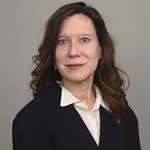 Dr. Carolyn Stevenson is currently a full-time faculty member for Purdue University Global. She completed her Ed.D. from Roosevelt University, M.B.A. from Kaplan University, M.A. in Communications from Governor’s State University and B.A. in English from Northern Illinois University. She has been cited for her expertise in online learning, qualitative research, open educational resources, and prior learning. She is also a regular reviewer for conference papers and textbooks and has served on various offices and committees for the American Education Research Association. Carolyn has over 20 years teaching and administrative experience in higher education at both the undergraduate and graduate levels and has taught Speech, Fine Arts and Humanities for City Colleges of Chicago. She is currently working on editing a text entitled Enhancing Higher Education Accessibility through Open Education and Prior Learning, to be published by IGI Global in 2020.
Dr. Carolyn Stevenson is currently a full-time faculty member for Purdue University Global. She completed her Ed.D. from Roosevelt University, M.B.A. from Kaplan University, M.A. in Communications from Governor’s State University and B.A. in English from Northern Illinois University. She has been cited for her expertise in online learning, qualitative research, open educational resources, and prior learning. She is also a regular reviewer for conference papers and textbooks and has served on various offices and committees for the American Education Research Association. Carolyn has over 20 years teaching and administrative experience in higher education at both the undergraduate and graduate levels and has taught Speech, Fine Arts and Humanities for City Colleges of Chicago. She is currently working on editing a text entitled Enhancing Higher Education Accessibility through Open Education and Prior Learning, to be published by IGI Global in 2020.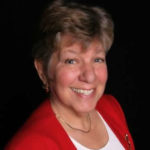 Ilene Ringler is a full-time faculty member. She serves as the course lead for the business perspectives course (part of the core MBA program) and the MBA capstone course. Ringler started her academic career while working for Bose Corporation and taught MBA courses at Babson University. She brings 30 years of work experience in the business field and is the principal of Ilene Ringler Associates, LLC, which provides services on values-based strategic growth and development. She has served on the Board of Directors for the Phoenix Chapter of National Association of Women Business Owners Mentoring Program, the Arizona Entrepreneurs, and the Women’s Enterprise Foundation. In addition to advising new and small business owners, Ringler has served as an advisor to the APS Academy for the Advancement of Small, Minority, and Women Owned Enterprises program. Research Interests: Ways to increase student satisfaction with discussion boards in the classroom and to promote effective collaborative work.
Ilene Ringler is a full-time faculty member. She serves as the course lead for the business perspectives course (part of the core MBA program) and the MBA capstone course. Ringler started her academic career while working for Bose Corporation and taught MBA courses at Babson University. She brings 30 years of work experience in the business field and is the principal of Ilene Ringler Associates, LLC, which provides services on values-based strategic growth and development. She has served on the Board of Directors for the Phoenix Chapter of National Association of Women Business Owners Mentoring Program, the Arizona Entrepreneurs, and the Women’s Enterprise Foundation. In addition to advising new and small business owners, Ringler has served as an advisor to the APS Academy for the Advancement of Small, Minority, and Women Owned Enterprises program. Research Interests: Ways to increase student satisfaction with discussion boards in the classroom and to promote effective collaborative work.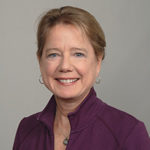 Carol Schubert is a full time professor at Purdue University Global and course lead for multiple courses within the MBA prgoram.
Carol Schubert is a full time professor at Purdue University Global and course lead for multiple courses within the MBA prgoram.
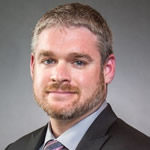 Dr. Glassman is an Assistant Professor of Management and IT Strategy in the College of Business at Embry-Riddle Aeronautical University – Worldwide. Dr. Glassman is the Chair of the Management & Technology Department and previously served as the Program Chair of the Master of Science in Management (MSM) Program. Prior to that he served as the Director of Academics for two ERAU-WW campuses. Dr. Glassman began his career at ERAU over a decade ago as an adjunct while still working in the aviation industry.
Dr. Glassman is an Assistant Professor of Management and IT Strategy in the College of Business at Embry-Riddle Aeronautical University – Worldwide. Dr. Glassman is the Chair of the Management & Technology Department and previously served as the Program Chair of the Master of Science in Management (MSM) Program. Prior to that he served as the Director of Academics for two ERAU-WW campuses. Dr. Glassman began his career at ERAU over a decade ago as an adjunct while still working in the aviation industry. Hello, my name is Hajeen Choi and I am a doctoral candidate in the Instructional Systems and Learning Technologies program at Florida State University. My research interests include social learning, motivation and engagement in online learning, informal learning, and social media in education. Currently, I am working on the projects such as the feeling of othering in online learning, using social media to foster social engagement in formal learning, and Twitter Conference Backchannel for building PLN and online presence. In regards to teaching, I teach an educational technology course to pre-service teachers and had been working as a teaching assistant for various online courses.
Hello, my name is Hajeen Choi and I am a doctoral candidate in the Instructional Systems and Learning Technologies program at Florida State University. My research interests include social learning, motivation and engagement in online learning, informal learning, and social media in education. Currently, I am working on the projects such as the feeling of othering in online learning, using social media to foster social engagement in formal learning, and Twitter Conference Backchannel for building PLN and online presence. In regards to teaching, I teach an educational technology course to pre-service teachers and had been working as a teaching assistant for various online courses.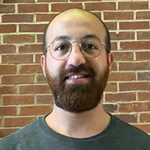 My name is Ömer Arslan and I am a second-year doctoral student in Instructional Systems and Learning Technologies program at Florida State University. My interest in online learning began when I was a master’s student in Turkey. I learned about socio-cultural dynamics manifested in learning environments. Currently, I engage in activities that contribute to my personal and professional development inclusive of enrolling in graduate courses, teaching Introduction to Educational Technology, participating in research projects, and research group meetings. I am local to Tallahassee, Florida for more than one year, and spent my spare time walking around lakes, jumping rope, and listening to music.
My name is Ömer Arslan and I am a second-year doctoral student in Instructional Systems and Learning Technologies program at Florida State University. My interest in online learning began when I was a master’s student in Turkey. I learned about socio-cultural dynamics manifested in learning environments. Currently, I engage in activities that contribute to my personal and professional development inclusive of enrolling in graduate courses, teaching Introduction to Educational Technology, participating in research projects, and research group meetings. I am local to Tallahassee, Florida for more than one year, and spent my spare time walking around lakes, jumping rope, and listening to music.